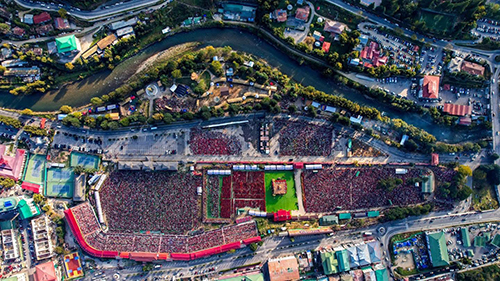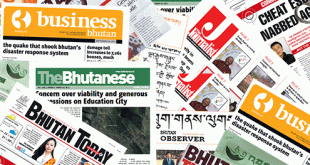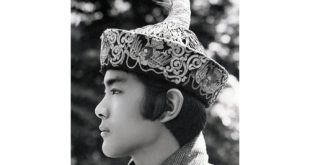The Global Peace Prayer Festival (GPPF) in Bhutan drew an extraordinary number of devotees this year, turning a profoundly spiritual gathering into a major public management challenge. Organisers said the turnout, especially during the Kalachakra transmission, far exceeded all estimates, testing the country’s crowd-control systems, sanitation capacity, and seating arrangements.
To accommodate visitors, more than 20,000 wooden planks were set up for public seating, including areas near the Mandala. These seats were intended to be free for everyone on a first-come, first-served basis, with strict guidelines prohibiting early bookings or space blocking. But the rule became difficult to enforce as devotees began gathering as early as 12 am, hours before the event.
Some individuals occupied rows of planks and reserved them for entire families of 12 to 13 people, leading to arguments among attendees who believed others were wrongly “claiming” seats. This resulted in frequent disputes, especially among elderly groups determined to secure spots near the Mandala.
“Seats near the Mandala were free for everyone. No one was allowed to reserve space, but many came too early and blocked entire planks. This caused misunderstandings and disputes, which we deeply regret,” a GPPF official stated.
Despite the difficulties, security measures were effective in preventing major incidents. The venue had eight separate entry and exit points that allowed the crowd to move in different directions. Officials noted that if there had been only one entryway, the high density of people could have caused a stampede-like situation, particularly during rush periods.
Over 3,000 DeSuups, along with police personnel, were deployed to ensure safety. They broke up quarrels, guided movement, and assisted the elderly. One volunteer described the ground reality and said, “The crowd was too much, making it harder to control. The quarrels were mostly among elderly people, and mainly because of the seats.”
Sanitation facilities also struggled due to the unexpectedly large number of devotees. Although 150 toilet units were installed, demand rapidly exceeded capacity, creating long queues and discomfort, especially for women, children, and elderly participants.
Organisers acknowledged that limited preparation time was their greatest constraint. With a short window for planning and no pre-registration system, estimating the number of devotees became nearly impossible.
However, they emphasized that despite the challenges, the festival was a major achievement for Bhutan.
“We did the best we could in a short amount of time. It was successful and, above all, one of Bhutan’s biggest achievements in bringing thousands together in peace,” the GPPF official stated proudly.
The organisers said the experience has provided valuable insight for future events. They plan to introduce stricter seating policies, clearer public messaging, expanded sanitation facilities, better entry management, and stronger crowd coordination systems.
As Bhutan continues to host large-scale spiritual events, GPPF stands as a proud milestone, proving that even under immense crowd pressure, the country can conduct a global religious gathering while reinforcing lessons to elevate future editions.
 The Bhutanese Leading the way.
The Bhutanese Leading the way.




